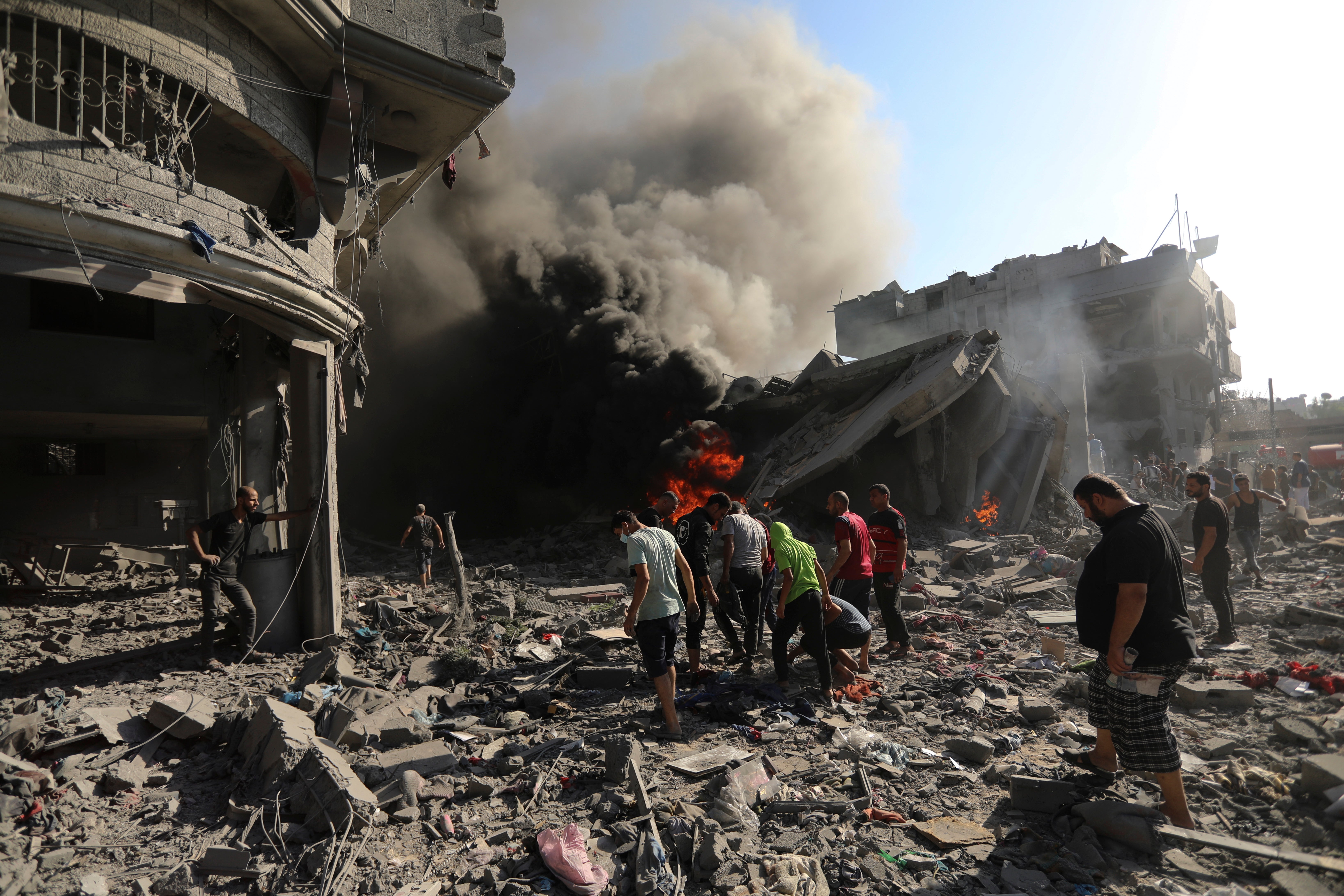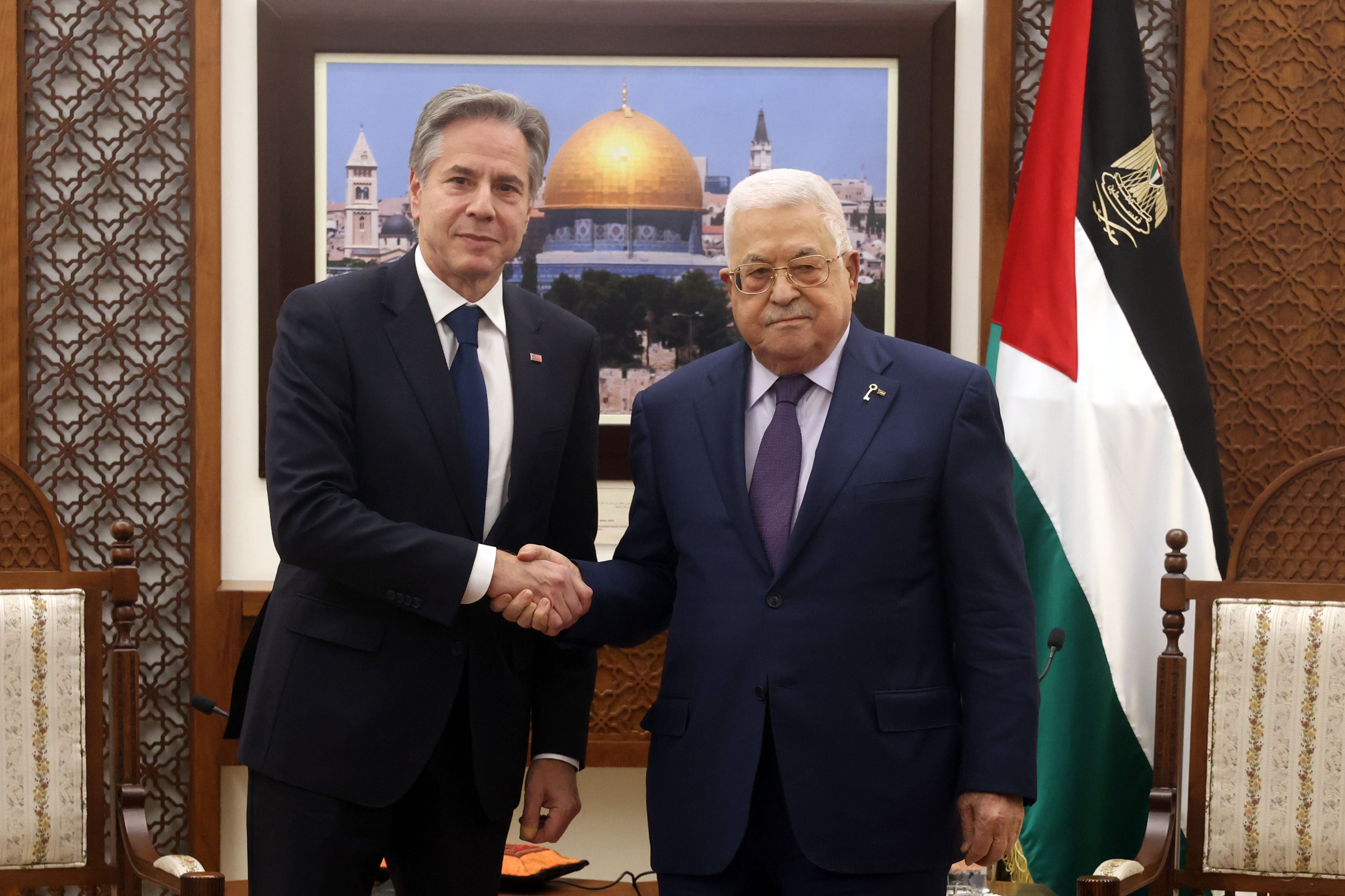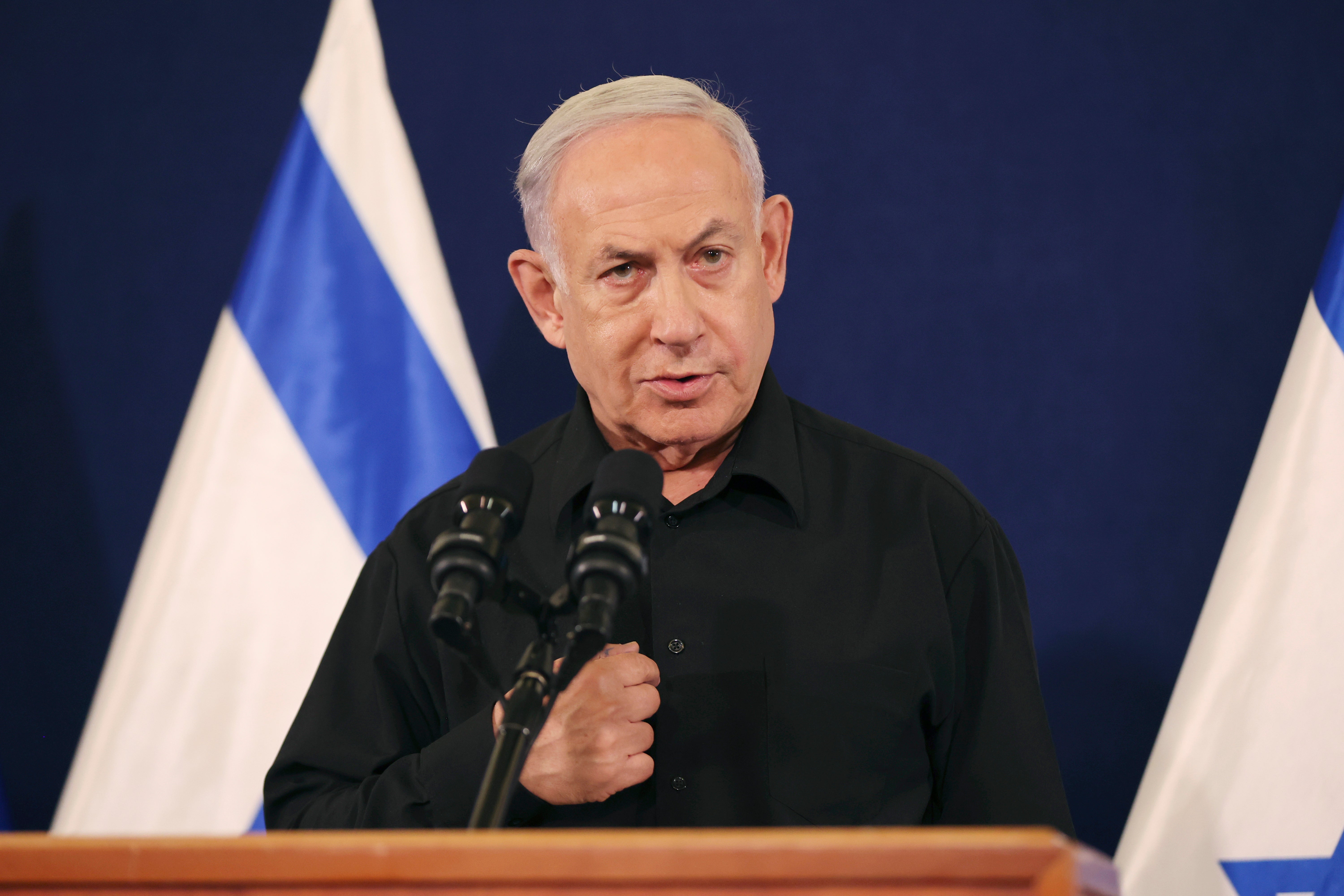US top diplomat visits West Bank in bid for future peace as airstrikes kill dozens in Gaza
More than 9,700 Palestinians have been killed in Gaza since 7 October, according to the Hamas-run health ministry

Your support helps us to tell the story
From reproductive rights to climate change to Big Tech, The Independent is on the ground when the story is developing. Whether it's investigating the financials of Elon Musk's pro-Trump PAC or producing our latest documentary, 'The A Word', which shines a light on the American women fighting for reproductive rights, we know how important it is to parse out the facts from the messaging.
At such a critical moment in US history, we need reporters on the ground. Your donation allows us to keep sending journalists to speak to both sides of the story.
The Independent is trusted by Americans across the entire political spectrum. And unlike many other quality news outlets, we choose not to lock Americans out of our reporting and analysis with paywalls. We believe quality journalism should be available to everyone, paid for by those who can afford it.
Your support makes all the difference.US secretary of state Antony Blinken visited the West Bank on Sunday as he claimed the ruling Palestinian Authority (PA) should play a central role in the future of the Gaza Strip.
Mr Blinken passed through Israeli checkpoints to meet PA president Mahmoud Abbas in the city of Ramallah on his second visit to the region since Palestinian Hamas fighters launched a surprise attack on southern Israel on 7 October, killing 1,400 people and taking more than 240 others hostage.
As Israel continued a campaign of airstrikes that Gaza health officials say has killed more than 9,700 Palestinians, Mr Blinken rebuffed calls for a ceasefire from Arab officials on Saturday after appealing, unsuccessfully, to Israel for more limited pauses to the fighting a day earlier.
Mr Blinken has been championing the US-led charge to find a long-term peaceful resolution to the violence in Gaza but it is a plan that is predicated on the removal of Hamas from the enclave despite wider Western calls for an immediate cessation of fighting – a move that would leave the militant group in charge of the Strip.

However, there remains considerable doubt about the Palestinian Authority despite beliefs that they are the only alternative to Hamas.
Ghaith al-Omari, a former adviser to Mr Abbas, told The Independent that the majority of Palestinians, both in Gaza and the West Bank, see the PA “as a liability not an asset”.
The latest polls have also suggested overwhelmingly that Palestinians are not in favour of the PA returning to the enclave.
“Right now, the PA is unable to even govern Nablus or Jenin [in the West Bank], so to think that the idea they will come into Gaza in the short-term is fanciful,” Mr al-Omari said.
“The majority see them as a liability, not an asset, so they would not have the political standing to come in, certainly not on the back of Israeli tanks.”
Mr Abbas told Mr Blinken on Sunday that Gaza is “an integral part” of the state Palestinians want, according to an account of the meeting from the official Palestinian news agency WAFA, which suggested any PA role in governing Gaza would have to be part of a wider settlement of the decades-old conflict.
“We will fully assume our responsibilities within the framework of a comprehensive political solution that includes all of the West Bank, including East Jerusalem, and the Gaza Strip,” Mr Abbas was quoted by WAFA as saying.

It comes as Israeli prime minister Benjamin Netanyahu on Sunday rejected growing calls for a ceasefire in Gaza until all of the more than 240 hostages are returned.
“There will be no ceasefire without the return of the hostages. This should be completely removed from the lexicon,” Mr Netanyahu told crews at the Ramon air force base in southern Israel, reiterating the government’s long-standing position.
“We say this to our friends and to our enemies: we will simply continue until we defeat them. We have no alternative.”
While Israel has come under international pressure to minimise Palestinian civilian deaths in Gaza and allow a “humanitarian pause” in fighting, Mr Netanyahu is also facing considerable domestic pressure from the families of Israeli hostages.
Israeli police had to hold back protesters outside Mr Netanyahu’s residence in Jerusalem on Saturday night amid widespread anger at the failures that led to last month's attack by Hamas.
Waving blue and white Israeli flags and chanting “jail now!”, a crowd in the hundreds pushed through police barriers near the prime minister’s house. Several people were later arrested.

Israeli airstrikes continued to hit Gaza while the protests were ongoing. Missiles hit the Maghazi refugee camp in central Gaza on Saturday night, killing at least 40 people and wounding 34 others, according to the Hamas-run health ministry.
Arafat Abu Mashaia, who lives in the camp, said the airstrike flattened several multi-storey homes where people forced out of other parts of Gaza were sheltering.
“It was a true massacre," he said early on Sunday while standing on the wreckage of destroyed homes. “All here are peaceful people. I challenge anyone who says there were resistance [fighters] here.”
The camp, located in a residential area, is in the evacuation zone where Israel’s military has urged Palestinian civilians to seek refuge as it focuses its military offensive on the north.
Another airstrike hit a house near a school at the Bureji refugee camp in central Gaza on Sunday and staff at Al-Aqsa hospital said at least 13 people were killed. The camp is home to an estimated 46,000 people and was struck on Thursday as well.
The health ministry said more than 9,700 Palestinians have been killed in the territory in nearly a month of war, and that number is likely to rise as Israeli troops advance into dense urban neighbourhoods.
Meanwhile, former UK prime minister Boris Johnson met with Israeli soldiers during a surprise visit to the country on Sunday to “express solidarity and support” following the 7 October attack.
Footage showed Mr Johnson speaking to soldiers nearly three weeks after Rishi Sunak visited Israel ostensibly for the same reasons.
Join our commenting forum
Join thought-provoking conversations, follow other Independent readers and see their replies
Comments